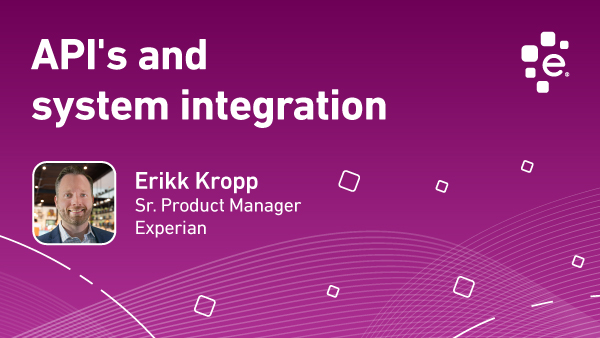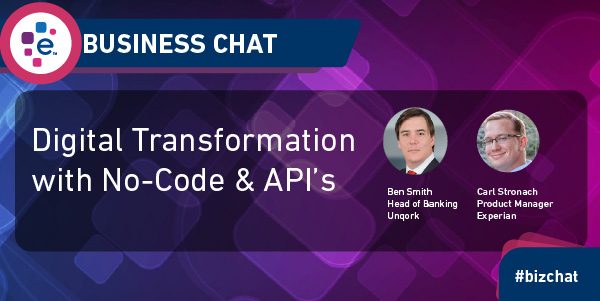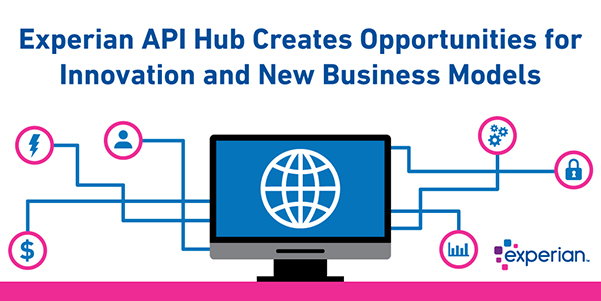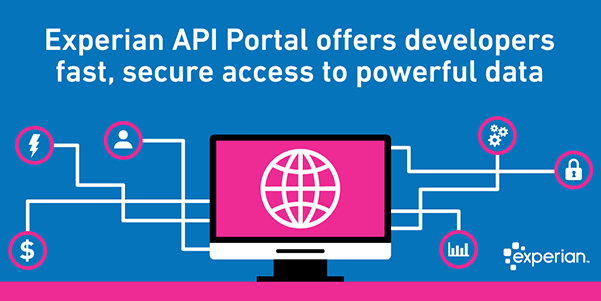Tag: api

Explore how API integration transforms business efficiency, enabling seamless data management, automation, and advanced client segmentation for growth and risk management.

In the wake of the Coronavirus Pandemic, thousands of companies were forced to go digital, transforming brick and mortar experiences to mobile-enabled, touchless digital experiences. Whether you were a small grocery chain or a family restaurant getting plugged into a myriad of takeout ordering platforms, the choice was simple, upgrade to a fully digital experience or go extinct. When the $2.2 trillion CARES act passed in March of 2020, and with it the $350 billion Paycheck Protection Program, many banks had to work quickly to transform their SMB lending process to be more data-driven, risk-proof, scalable, and ready to deploy in a matter of weeks, rather than months. The Unqork no-code solution offers a flexible alternative. There’s a new breed of solutions that make it possible for banks to build robust, mission-critical applications without using a single line of code. Unqork is the leading no-code enterprise application development platform. With Unqork, you can manage no-code application development throughout the entire Software Development Lifecycle without having to implement traditional coding efforts, so you can move faster at a lower cost with fewer errors to future-proof your business. The Unqork platform makes it easy to power applications with Experian data using API’s. You can build powerful digital experiences without the scripting and coding you would normally expect. Curious? Watch our recent Business Chat interview with Unqork below. Digital Transformation with No-Code & API's | Business Chat Interview Transcription We interviewed Ben Smith, Head of Banking with Unqork and Carl Stronach, Senior Product Manager with Experian met during a recent Business Chat about No-Code for Enterprise Financial Services. What follows is a lightly edited transcription of their talk. [Gary]: Hello and welcome to Business Chat. So happy you could join us today. I'm Gary Stockton with Experian; I'm with Business Information Services here in North America. We would love to know where you're joining us from. We're streaming here from Costa Mesa, California; we're live on LinkedIn and other channels via Restream. Be sure to drop us a comment and hashtag #teamlive if you're watching us live, hashtag #teamreplay, if you're catching this on the replay, and remember sharing, is caring. We would love it if you can share this chat. If you could let your colleagues know that we're talking about APIs and No-Code by sharing this live stream, that would help us expand our audience. So they were going to be talking about no-code technology and Experian API's with two great experts. Joining us from Unqork is Ben Smith. He's the head of banking, and from Experian is Carl Stronach. He's a Senior Product Manager here at Experian, and he works on API's. Welcome gentlemen. Ben, if you could take a moment, please tell us a bit about Unqork and your mission, where you're based, and how you got started. [Ben]: So we were founded in 2017 by Gary Hoberman. Gary was the CIO of MetLife, and Gary had a mission to redefine software development and focus on delivering software at the enterprise-grade faster with a lower total cost of ownership and something that could be delivered by a number of different people, not necessarily people who had a significant development talent and experience. So Gary set out in 2017 to redefine how we do it. We are a no-code platform. We are totally cloud-based and agnostic. We are deployed in over ten countries with over 70 different clients. And the other thing, part of the mission that we have here around the development is we've trained over 10,000 experts globally who can develop on the platform because we believe that the no-code environment allows for rapid adoption, and we want that adoption to be significant. [Ben]: So, what it says here is we have three major investors; we have a number of other ones. Obviously, BlackRock, Google, and Goldman Sachs are all major investors. And then, as I alluded to earlier, the mission of the firm is to develop enterprise-grade no-code solutions. So you can see at the bottom of this slide some of our major customers as well. [Gary]: Carl, could you share a little bit about your role here at Experian you've been at Experian quite a while, and how you work with companies like Unqork? [Carl]: So I've been with Experian for almost seven years, I'm focused on new product development. For the last four years, I have been focused on our APIs and bringing Experian business information into our global developer portal. In that time I've worked with a countless number of banks and FI's, and many of our clients across our verticals in their integration with Experian. In terms of how they are going to get our data in the most efficient way. I've supported a lot of them from the business side and the IT side and kind of sat in on both. And I've seen many of our clients really succeed with their integrations with us. That's just a direct integration to our rest API, and others, you know, take a long time. [Carl]: So I'm sensitive to the fact that coding to APIs as easy as we can try to make them with a rest API, and as easy as we can try to make them by adding SDKs or, or other supporting information on top, it's still difficult and time-consuming. A lot of the time to code to APIs certainly gets much more complex as we get into regulated data. So it's definitely something that we want to narrow the timeline strategically. How do we get access to data and query it faster than ever before? Strategically it's something we're interested in and excited to be a part of, and working with providers like Unqork allows us to unlock some of those technologies. [Gary]: So Ben, what's the distinction between low-code and no-code, and what drives the adoption of no-code technology? [Ben]: The main difference is that everything that we develop on Unqork does not have any native code to it. So for you, as a developer, it's a complete visual system. And the most important thing is there's no need to maintain the code once you've written it. So even in low code environments, there is, of course, the upkeep of the code, and ultimately it becomes legacy. Whereas in our system, all of our customers are on the same platform using the same environment, or sorry, using the same software to develop their solutions. And they're always up to date. That's a big difference, there's no need to develop that last bit, and there's no need to maintain it once it's out because as soon as you write a bit of code, you've got to maintain that code going forward. [Ben]: To the second point, how are people adopting it? We see it adopted across a number of use cases. So, for exactly that reason. Many in my world as Head of Banks, many of our customers in the banking sector are looking for ways to develop both customer-facing as well as internal-facing software that digitizes their workflows, whether that be onboarding, operations. It just depends on the needs of that particular bank. But again, the rapid development, the ability to get to market faster and the ability to not have to maintain that codebase once it's up and running have been a really powerful part of our value statement. [Gary]: Carl, switching to data and API's. You work with a lot of clients in the banking industry. Can you tell me where in the customer life cycle does Experian API's fall? [Carl]: It's really across the lifecycle. From campaign targeting and finding new customers to underwriting and account acquisition and customer management, even collections. It's really across the full spectrum. To take a step back. Everyone thinks of Experian as the consumer credit bureau. And, I am a very big fan of John Sina. So I think that's how Experian is generally known. But Experian's business goes well beyond just consumer credit. Obviously, we have business credit, and that's our focus here. But when it comes to our APIs, we bring everything together into a single global developer portal. So, what you can do through a single developer account is an interface with all Experian information, and we source data internally. So we've got our North America Business Information, Consumer Information, Automotive, Data, Quality, Decisioning, you name it, it's all available in one place. Also, we have an International focus too. So if you go there, you'll see API's from the UK, India, Singapore, all across the globe. We really try to be that shop for Experian data, making it much easier to code to us and eliminate those silos that used to exist in our own internal legacy systems. [Carl]: Now, I'm really excited by some of the things that Unqork can do. When we talk about setting up one workflow that can be shared many times and doesn't have to be re-coded over and over and over again, we see the same in working with our customers. When we work with our banking customers, a lot of them execute the same exact workflows to get to Experian data. Maybe the data they need is different. Maybe the data they find predictive is different, but it's really a lot of the same workflows. And so, as we work with Unqork we can define more of these workflows, make them predefined and hopefully just speed time to market. Really eliminate a lot of the burdens with a new integration or basically offer a new product and get it out. [Gary]: So you're finding that customers are applying these new technologies to get to market faster. I have to imagine that that was fairly active during COVID. A lot of people spinning up shopping carts and people that have brick-and-mortar stores had to innovate faster. And would you agree that platforms like Unqork are helping make that possible with API's? [Carl]: Absolutely, so that's even a part of what we're trying to do as well. As small businesses have had to transform due to COVID, they've had to adopt more digital experiences and maybe they had to. It's a restaurant and they had to change their storefront from having tables and chairs to having just a counter and offering delivery, opening up the restaurant to more kitchen space, to handle a greater number of orders coming in. I think we are also trying to capture new data assets that can tap into that business's digital transformation. So, we've done a lot to acquire more online data on businesses, more social media data on businesses, to tap into understanding what that business activity is. Are they open? Are they closed due to COVID? And so, as we start to adopt those new data sources, our clients also face the challenge of discovering them, integrating them into their services. [Gary]: Excellent. So, a two-part question for you Ben. How are banks deploying no code and, and are there any security considerations when using a no-code platform? [Ben]: I think you know what we do here at Unqork for some of our customers, and what Unqork provides is the capability to both design a bank-specific user experience, but in a rapid way to deploy digitally. To solve problems that are rising quickly. PPP is a good example of that and other ones. Going forward, the ability to integrate with places like Experian on different data types such as social and some of the other ones that Carl spoke of. I think will be very important in terms of how banks redefine their small business and business offerings because post-COVID we're all going to be trying to figure out how to serve that segment in a way that makes sense from both a credit and a service point of view. [Gary]: Excellent. So, Carl what challenges are you seeing with lenders adopting and integrating bureau and non-traditional data? I mean, non-traditional is a hot space right now. [Carl]: Yeah. So, I think one of the challenges is just discovering the data and defining it, and being able to start working with it. I think we experienced that, even internally, so there are just so many different data sources out there. How do you really prioritize what to go after? Having it available in a single place is really key. If you had to continually define data and bring it into your database in order to work with it, it just becomes very challenging. We need to find and adopt technologies that take that burden away from our customers. Gary, we can't expect every customer to define the data source. We need to do it for them and technologies like Unqork, give us the ability to do that. And so, I'm excited by that part. If we can lower the burden there, it can unleash data analysts and data scientists to really find out which data might be predictive. So a lot of our customers want to find data that's going to be predictive of credit risk, predictive of delinquency. We need to find ways that allow them to really focus their time on finding the data, what data is actually going to be predictive. I don't want to spend all my time just defining the data just so I can test the top, a couple of fields that I have a hunch on. I want to go deeper and really find that marginal value. And technology is the key enabler that lets us do that. So go into the data. [Gary]: Thank you, Carl. So, Ben, based on what we just heard from Carl, can you share some examples of how SMB lenders can fast-track lending applications? [Ben]: Sure. We're working with banks around both customer onboarding and also around, the product development, into the origination cycle. I think what Carl's saying is right. To the extent that we can discover this data and get it at a deeper level, get it into the risk modeling infrastructure, through the integrations that we, as a platform can build, allows for more rapid adoption of alternative data sources. But also, better credit decisioning, you know, particularly as I sort of feel passionately about a post-COVID world and the need to take a different view as to how that credit risk moves or how credit risk is assessed. [Gary]: Well this has been very interesting guys. And folks, if you would like to learn more about no-code and how to fast track applications and integrate with Experian API's, Unqork is hosting a webinar March 24th at 12 Eastern. Experian is going to be participating in that, we're very excited to participate. If you would like to register, you can just point your phone at the QR code or go to the link that we have there. We'll leave that in the description for this video, if you want to come back to this later. And, by all means, if you have any questions drop them in the comments. We'll be monitoring the comments in the next few days and replying to those. I want to thank both of you guys for taking time out today. I know you're both extremely busy, and looking forward to chatting with you again soon and looking forward to the webinar on the 24th. Watch Webinar Unqork + Experian: Smarter Small Business Lending

Carl Stronach is the Senior Product Manager for Experian’s API Developer Hub. We sat down with him recently to discuss how API’s are helping business clients solve problems, and to get answers to some frequently asked questions about Experian Business API’s, how they work, and how developers can get started using them. What is the API Developer Hub and Why Did Experian Launch It? The Experian API Hub is a one stop shop for all Experian data. Whether client developer’s come into Experian to access our information on businesses, consumers, automotive data, data quality, they can find all our API’s in one place through one developer account. It makes it much easier for developers to come in find all the data assets that Experian has and start testing that data in just minutes. So clients are coming into the API hub and they’re coding to our API’s to integrate that data into their applications. And so one of the most exciting things that I find is when clients will share a screenshot with me of all our data that’s live in their application. Can you give us some examples of the kinds of apps clients have connected to the hub, do we know what data is being used for? We see clients using the API is for a variety of reasons. The first one would be your traditional credit underwriting. They need to have a Credit Manager access Experian data within their own application so that they can make a credit decision. The API makes it easy to put all the data that a Credit Manager needs on one single screen. That’s what they are designed to do. And so that’s probably the first use case. The second use case that clients are coming into is when they’re running their own platform. Clients are coming in. They might be a fintech company. They might be a special niche provider of business information on a specific industry. So the API’s enable not only Experian to have a direct relationship with clients and end users, but also enable our own partners to give their end users access to Experian data within their applications as well. Does the Experian API Developer Hub open up opportunities for new business models? We’re enabling new types of clients to come into Experian and start working with our data, clients who would have never done that before. We’re opening the market to these types of developers to create new types of innovations. It spurs innovation. So yes, we think the API Hub enables new business models to be created. One of the ways we’re tackling that is by making the API’s available for startups making the API’s available for startup incubators. There’s all these little networks of startup incubators that allow all their startups to get access to different data assets, or different API’s to solve these business problems. Experian is getting into those incubators to allow our data to be at the fingertips of these startup environments where we can go a step further than just the public developer portal access that we provide to everyone. For some of these businesses that are in these incubators, we can provide production grade data to businesses who are just starting up. Normally they wouldn’t have the capital or funds to access our data in the production environment if they were to come to us directly, but as a part of these programs they can get started in creating a real application at a relatively low cost in those early phases of their business. What are the key benefits of using an API over other processes such as batch delivery? Many clients today might be using a batch process to automatically update their portfolio. There are certainly many benefits to using a batch process. It’s a bulk process. We offer very competitive pricing when we’re talking about batch delivery. The disadvantage is that the data isn’t real-time. Underwriting decisions are best supported by access to fresh data. That’s real-time, and that’s exactly what the APIs do. So when a client makes an API call to us we calculate data based on the data we have available at that time. We’ll pull data to create calculate a score on the fly, a fresh score. Every API that we have delivers data that we have in our database in real-time, so that real-time data that you can get at your fingertips when a client is completing an application, and you can use that data in real-time to make real-time decisions. So there are a few different ways. Where can people learn more about Experian API’s? The best way to find out about our API is to go directly to our API developer portal. The API developer portal is at developer.experian.com. If you visit, you’re able to go to the portal see the API’s that we have, read our API documentation. You can register for an account in just a few minutes and start making test API calls to start seeing how you might interact with Experian data and integrate that into your application. Other ways that we’re supporting clients interacting with our API’s – we are focused on not only say Credit Managers, and those traditional use cases that we’re working with, but we’re really focused on the client developer, and so we’re trying to make it as easy as possible for developers to code to our API’s. We’re doing things like creating libraries. We have some developer libraries that are out on GitHub right now. There’s a Node.JS library and a Java library that is available. We also can provide what’s called a Postman collection to our developers. Basically, it lets them download our API’s onto their computer and start making test API calls to any of our API’s in just a few minutes. It makes it super easy to start coding and interacting with our API’s. We’re trying to provide these open source ways for developers to start working with Experian data. And you know we’re looking for that client feedback. You know, what types of developer libraries can we create to make it easier for you to code to our API’s and integrate. We want to make API integration as easy as possible for some clients, so we’re going the extra mile to create open-source code that makes it really easy to interact with Experian API. Experian API Developer Portal

One of the world's largest financial institutions, Citi is determined to keep pace with rapid changes in international commerce. As detailed in the April 2017 issue of PYMNTS.com's B2B API Tracker Citi believes APIs – Application Programing Interfaces – are the key to getting international businesses the financial information they need to prosper. "We realized [our] clients were getting into newer business models which require faster access to payments [and] faster access to information," Mayank Mishra, managing director and global head of channel services for Citi treasury and trade solutions, told B2B API Tracker. "We had to go with a standard that was well-accepted by clients so they wouldn’t have to go through massive infrastructure changes." He noted the company's heavy investments in APIs will give its customers "the flexibility they're looking for to access the relevant information they want." Like Citi, Experian is eager to serve clients in a nimble, open fashion. To address this need Experian has created an API Developer Hub. Found at developer.experian.com, the Experian API Developer Hub is poised to expose the company's deep and detailed data on businesses and consumers, in addition to Experian’s automotive, health, and decisioning services in both the US and across the globe to the developer community. The API Bonanza Although they have been around for years, APIs have recently garnered lots of attention from companies of all types and sizes. "APIs are a technology exposed over the web that allow applications (software programs) to talk to one another," explained Mike Myers, Experian's Senior Director of Product Marketing. "APIs provide software developers with instructions on how to easily access and integrate data that can help fast track new ideas, partnerships, and innovation." Myers leads a team that creates business information APIs for the API Developer Hub, giving developers easy access to Experian's business information to use as they see fit. Laid out simply and intuitively, the Developer Hub serves as an easy-to-use "window" through which users can see: The depth and breadth of information Experian can provide to them How to acquire this information in a form most useful to their company How this information can be easily requested and consumed Serving Both Established Core Customers and Aggressive Start-Ups Myers explained that there are two principal markets for the new API Developer Hub: Mike Myers Experian AgileWorks "The first is our core customers, mainly financial institutions, insurance companies, trade credit, credit managers – basically the user who needs to integrate Experian data to determine their customers’ status, needs to reduce friction and minimize risk when making credit decisions as well as satisfy compliance regulations. This use case has been our bread and butter for decades," Myers said. "They need to manage risk. They must ensure their operations are in compliance. And, perhaps most importantly, when issuing credit, the likelihood that they’re going to get paid. That’s really the bottom line and is a key issue our API developer portal is designed to address." The second use case is designed for the developer community. “Developers are working for companies of all types and sizes that have yet to experience the power Experian’s data assets can deliver. They may share similar needs to our core users, but they most likely also have completely different market problems which Experian data can help solve. Maybe it’s a subset of our data applied to a new use case or maybe it’s combining our data with other data in new and innovative ways.” Experian designed the API Developer Hub to be as user-friendly as possible. New accounts can be setup in minutes. "It's taken a historically offline process and converted it to real-time” Myers said. Developers can explore a host of options, including access to APIs for Business Search, Business Credit, Commercial Public Records and Business Compliance Insight. We don't know what new apps or offerings will appear because of this new venture, but with the amount of energy, imagination and innovation driving today's tech world, we suspect that through APIs, developers will enhance the power of companies -- and consumers -- in ways we can't yet even imagine. We are proud -- and thrilled -- to be contributing to this ongoing revolution. Experian Developer Hub
